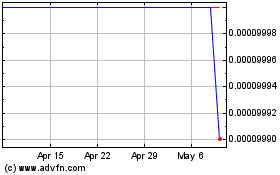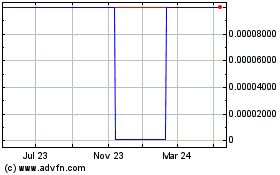Rosetta Genomics Announces Publication of Data Confirming Analytical Validity of its Novel Thyroid Nodule Classification Assay
May 26 2016 - 7:00AM
Business Wire
RosettaGX Reveal™ is the first commercial test
validated to analyze the same thyroid cells on which the initial
indeterminate diagnosis was based
Rosetta Genomics Ltd. (NASDAQ:ROSG), a leading developer and
provider of microRNA-based and other molecular diagnostics,
announced that data from the analytical validation of the Company’s
novel, microRNA-based assay for the classification of indeterminate
thyroid nodules have been published online in the peer-reviewed
journal, Cancer Cytopathology. The article, “Analytical
Validity of a microRNA-based Assay for Diagnosing Indeterminate
Thyroid FNA Smears from Routinely Prepared Cytology Slides,”
highlights the robustness of RosettaGX Reveal™, a test that
stratifies indeterminate thyroid lesions as “benign,” “suspicious
for malignancy by microRNA” or “positive for medullary carcinoma”
in preoperative Fine Needle Aspirate (FNA) by utilizing existing
cytology smear samples. The article can be accessed here.
The article reports on more than 800 FNA slides that were
evaluated for intra-nodule concordance, effect of stain type,
minimal acceptable RNA amounts, performance on low number of
thyroid cells, effect of time since sampling, analytical
sensitivity, specificity, and reproducibility. The results showed
that the assay can be run on FNA slides for which as little as 1%
of the cells are thyroid epithelial cells as was the case with most
of the samples. Stain type and/or the length of time between FNA
sampling and processing did not affect assay performance.
Importantly, the data presented show that while the assay can
correctly classify samples with a low number of thyroid cells, it
does not mistakenly diagnose samples that do not contain any
thyroid material.
The study authors concluded that, “Given the assay's
performance, robustness and utilization of routinely prepared FNA
slides, it has the potential to provide valuable aid for physicians
in the diagnosis of thyroid nodules.”
“In addition to its excellent performance, RosettaGX Reveal has
significant advantage to current assays on the market because it
can work off the same cytology slides that were created to perform
the initial diagnosis, thus eliminating the risks, added patient
stress, and unnecessary pain associated with additional fine needle
passes. Importantly, RosettaGX Reveal can evaluate the same cells
that were already examined,” noted Christopher J. VandenBussche
M.D., The Johns Hopkins University School of Medicine, Baltimore,
MD and an author of the publication.
“The published data add to the growing body of clinical
evidence, including previously reported clinical validity data,
that support the use of RosettaGX Reveal to help resolve ambiguity
in an indeterminate thyroid cancer diagnosis and thus reduce
unnecessary surgeries,” said Kenneth A. Berlin, President and Chief
Executive Officer of Rosetta Genomics.
"The analytical validation data published today reinforce the
quality and scientific rigor behind our thyroid microRNA classifier
and should help accelerate commercial uptake of this important
assay for which we have seen a three-fold increase in samples
processed from March to April of this year. These positive data
will also help us achieve our stated goal to process 200-400
RosettaGX Reveal samples per month by the end of this year. In
addition, this publication, along with other papers we expect to
have published, will advance our efforts to secure additional
reimbursement and access to RosettaGX Reveal, which we believe will
transform thyroid cancer diagnosis to benefit patients, physicians
and payers.
“These published data demonstrate the strong analytical
sensitivity and reproducibility of RosettaGX Reveal under a range
of conditions and variables. These include consistent test
performance despite common sample variations, such as RNA quantity
and potential blood contamination that the classifier is likely to
encounter in clinical use. The study also shows that the classifier
results are reproducible across operators, processing runs, reagent
lots and laboratories.
“This is the first peer-reviewed publication for RosettaGX
Reveal and we have already submitted a second paper for publication
and are working on a number of additional studies for RosettaGX
Reveal. With this paper, we now have 53 peer-reviewed publications
relating to, among other things, the seven microRNA-based assays
that we have developed and commercially launched from our leading
and proprietary microRNA biomarker platforms. The large number of
peer-reviewed publications we have enjoyed to date further
demonstrates the robustness, versatility and prolific potential of
these platforms,” concluded Mr. Berlin.
About Rosetta Genomics
Rosetta develops and commercializes a full range of
microRNA-based and other molecular diagnostics. Rosetta’s
integrative research platform combining bioinformatics and
state-of-the-art laboratory processes has led to the discovery of
hundreds of biologically validated novel human microRNAs. Building
on its strong patent position and proprietary platform
technologies, Rosetta is working on the application of these
technologies in the development and commercialization of a full
range of microRNA-based diagnostic tools. Through the acquisition
of PersonalizeDx, the Company now offers core FISH, IHC and
PCR-based testing capabilities and partnerships in Pathology,
Oncology and Urology that provide additional content and platforms
that complement Rosetta’s microRNA and Next-Gen Sequencing
offerings. RosettaGX Reveal™, a Thyroid microRNA Classifier for the
diagnosis of indeterminate thyroid FNA smears, as well as the full
RosettaGX™ portfolio of cancer testing services are commercially
available through the Company’s Philadelphia, PA- and Lake Forest,
CA-based CAP-accredited, CLIA-certified labs,. For more information
visit www.rosettagx.com.
Forward-Looking Statement Disclaimer
Various statements in this release concerning Rosetta’s future
expectations, plans and prospects including without limitation,
statements relating to test adoption and sample acquisition,
benefits to patients, physicians and payers, securing
reimbursement, expansion of commercialization, future publications,
and transformation of thyroid cancer diagnosis constitute
forward-looking statements for the purposes of the safe harbor
provisions under The Private Securities Litigation Reform Act of
1995. Actual results may differ materially from those indicated by
these forward-looking statements as a result of various important
factors, including those risks more fully discussed in the "Risk
Factors" section of Rosetta’s Annual Report on Form 20-F for the
year ended December 31, 2015 as filed with the SEC. In
addition, any forward-looking statements represent Rosetta’s views
only as of the date of this release and should not be relied upon
as representing its views as of any subsequent date. Rosetta does
not assume any obligation to update any forward-looking statements
unless required by law.
View source
version on businesswire.com: http://www.businesswire.com/news/home/20160526005607/en/
Rosetta Genomics:Ken Berlin,(267) 298-1159President &
CEOinvestors@rosettagx.comorRosetta Genomics
Investors:LHAAnne Marie Fields, (212)
838-3777afields@lhai.com
Rosetta Genomics (CE) (USOTC:ROSGQ)
Historical Stock Chart
From Mar 2024 to Apr 2024

Rosetta Genomics (CE) (USOTC:ROSGQ)
Historical Stock Chart
From Apr 2023 to Apr 2024
